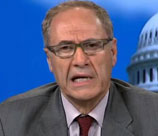



As the people of the Kurdistan Region prepare to head to the polls on September 25, 2017, in a historical referendum on Kurdistan's independence, we compare the economies of Iraq with other nations and ask, “What economic structure would a sovereign Kurdistan take?"
Read MoreThis is not a political opinion, but an economic point of view. Some people in the Kurdistan Region oppose the proposed referendum for independence just because it's adopted by a certain party, while others argue that this isn't the right time for a serious step like that as the Region is suffering from severe economic crisis.
Read MoreKaufmann et al (1999) defined "governance as the traditions and institutions that determine how authority is exercised in a country." Based on available literature including thoughts of neo-institutional scholars including, Douglass North and MancurOlsan, a positive relationship between the quality of institutions, governance structures, and economic growth is found.
Read More
Dr. Edmund Ghareeb is a scholar at the American University in Washington and a professor at George Washington University's Elliott School of International Affairs. He is an internationally recognized expert on the Middle East and media issues, specializing in Iraq and Kurdistan. Dr. Ghareeb is a former journalist and has been widely interviewed and published by Arab, American, and European television, radio, and newspapers on the Middle East, the media, and US-related issues. He has authored numerous books including: Split Vision: The Portrayal of Arabs in the U.S. Media, The Kurdish Question, The Kurdish Nationalist Movement, and Iraq: A Historical Dictionary. Dr. Ghareeb is the first Mr. Mustafa Barzani Scholar of Global Kurdish Studies at American University's Center for Global Peace. He received a PhD in Middle Eastern and North African Affairs from Georgetown University.